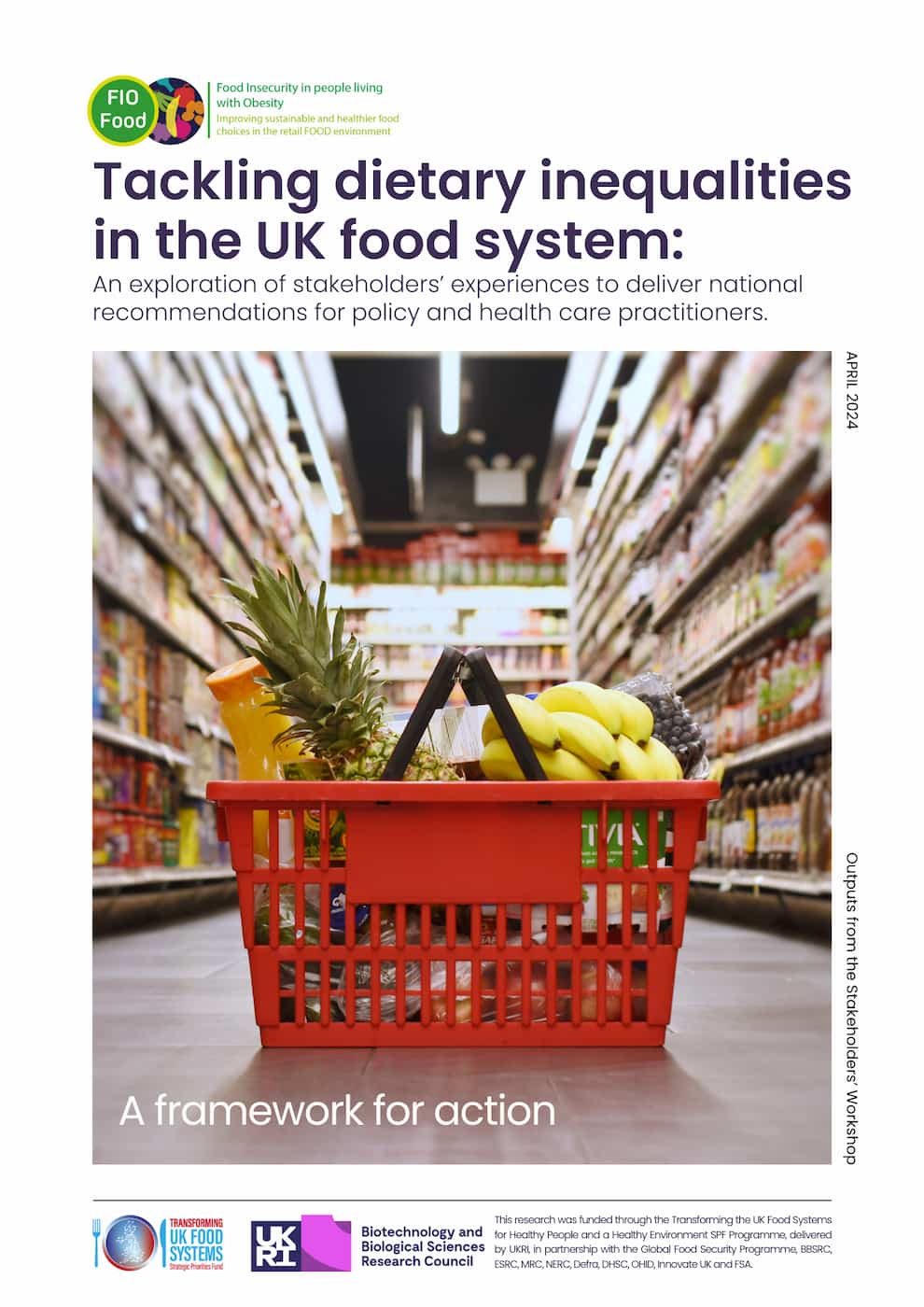Quick Links
About the project | Grant outline | Work Packages | Newsletters | Deliverables | Contact us

The overall aim of the project is to provide actionable evidence for policy on retail strategies to address dietary inequalities in people living with obesity and food insecurity, to support sustainable and healthier food choices in the UK food system.
About the project
- Project Summary
-
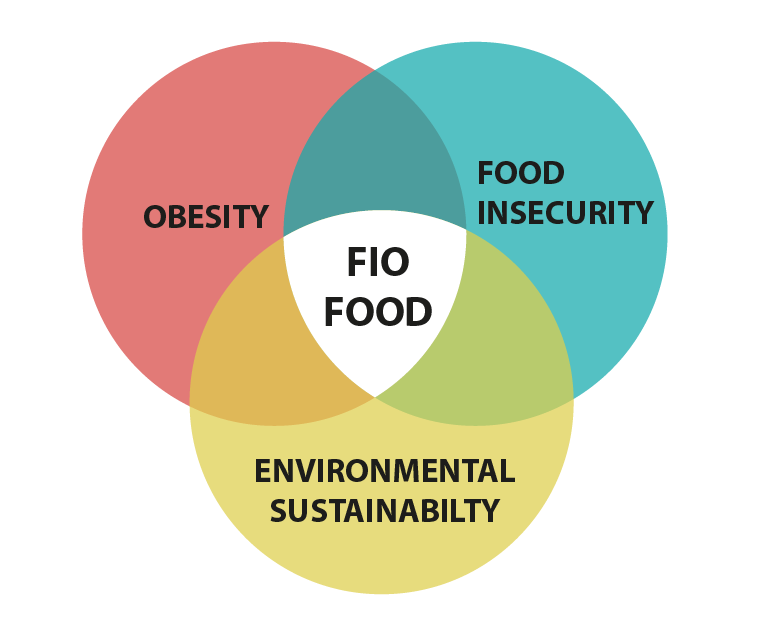
The National Food Strategy team have extensively reviewed the UK food system with the remit for planning access “safe, healthy, affordable food; regardless of where they live or how much they earn”. In the detailed report, the key issues of obesity, reducing diet-related inequality and the environmental impact of the food system are described and discussed. The links between food insecurity and development of obesity and the potential effectiveness of interventions to prevent and reduce the impact of diet-induced health harms is not well evidenced in the UK retail food environment.
We address this call for evidence through a novel and multi-disciplinary collaborative approach with co-development as a key feature, through four inter-linked work packages, to combine our knowledge of large-scale population data with an understanding of lived experiences of food shopping for people living with obesity and food insecurity, to develop solutions to improve sustainable and healthier food choices.
- About the project
-
Professor Alexandra Johnstone at Rowett Institute at the University of Aberdeen is leading this Strategic Priorities Fund UKRI grant, with an excellent team of academics and food partners. The high levels of obesity in the UK represent a key public health issue, with 67% of the UK population living with overweight or obesity. Obesity remains a core government priority. The UK has yet to find an effective strategy to help reduce obesity levels, especially among low-income communities. We need better evidence on how we can change food purchasing and consumption behaviours for people living with obesity and food insecurity that can improve their health and wellbeing, while also be sustainable.
Funded by the Biotechnology and Biological Sciences Research Council (BBSRC) Strategic Priorities Fund (SPF), part of UK Research and Innovation (UKRI), we aim to research how the world can make healthy and environmentally sustainable changes to food choices for those living with obesity and facing food insecurity.
The Rowett Institute has over 100 years of experience investigating nutrition and disease process, adapting our research for the needs of the current population.
Our focus is now on addressing what sounds like opposite issues, the overconsumption of food and food insecurity, however the two are very much related. These problems are multi-dimensional, coming with their own complications. Our goal is to identify how we can provide realistic and robust solutions whilst paying close attention to the cost-of-living crisis. Obesity is at the core of many disease processes and is associated with mortality and morbidity. It places a burden on our healthcare system, and it is vital that we make swift progress towards providing solutions.
- Definitions
-
The terms 'food insecurity' and 'environmentally sustainable' diets are themselves controversial. The extended FAO definition that refers to household level food insecurity (FI) underpins the Food Insecurity Experience Scale that we are using to identify food insecure participants is, 'a lack regular access to enough safe and nutritious food for normal growth and development and an active and healthy life. This may be due to unavailability of food and/or lack of resources to obtain food' (FAO, IFAD, UNICEF, WFP and WHO, 2021). We will use these working definitions below and apply the principles of the Eatwell Guide for a sustainable healthy diet (PHE, 2016).
- Food insecurity (FI) The condition of not having access to sufficient food, or food of an adequate quality, to meet one's basic needs (Oxford Dictionary Definition).
- Sustainable Healthy Diets are 'dietary patterns that promote all dimensions of individuals' health and wellbeing; have low environmental pressure and impact; are accessible, affordable, safe and equitable; and are culturally acceptable” (FAO and WHO, 2019).
- Carbon Trust, The Eatwell Guide: A More Sustainable Diet (2016)
- Contact us
-
Professor Alexandra Johnstone
E: Alex.Johnstone@abdn.ac.uk
T: +44 (0)1224 438614The Rowett Institute,
Foresterhill,
Aberdeen
AB25 2ZD
Grant outline
Our approach
We need new ways of collaboration to effectively transform the food system into promoting healthy, environmentally sustainable, and equitable diets. Our multidisciplinary research approach is detailed in the project outline figure.
A description of the planned activities of the four work packages
WP1 - Lived Experience - Persons; Food System Stakeholders; Patients - Co-design of supermarket-based interventions that support people living with obesity and food insecurity to acquire healthy & sustainable food (Douglas, Brown & Hardman)
WP2 - Population level - Utilising supermarket transactions and data science to understand the health and sustainability of population diet at scale (Morris, Gilthorpe & Green)
WP3 - Action level - Implementation of retail strategies to promote healthy and sustainability purchasing in consumers & patients (Gately, Griffiths & Sainsburys)
WP4 - Stakeholder engagement & impact delivery - Policy; Retail; Consumers - Share key project findings for transformative potential (Johnstone, Co-PI's, Stakeholder Group & Steering Group)
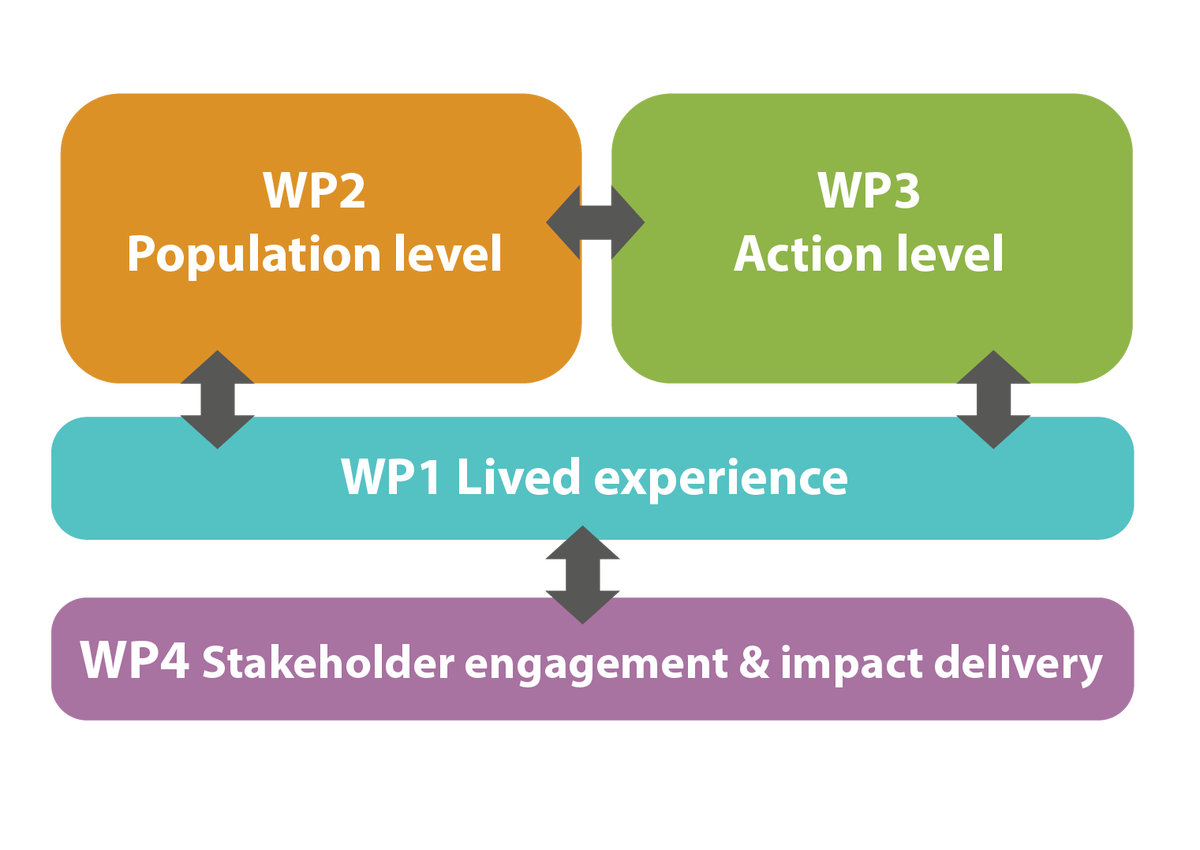
Work Packages
- Work Package 1
-
To capture and apply the lived experience to inform retail strategies.
Aim
Co-design of supermarket-based interventions that support people living with obesity and food insecurity to acquire healthy and sustainable food.
Who is involved
Dr Charlotte Hardman 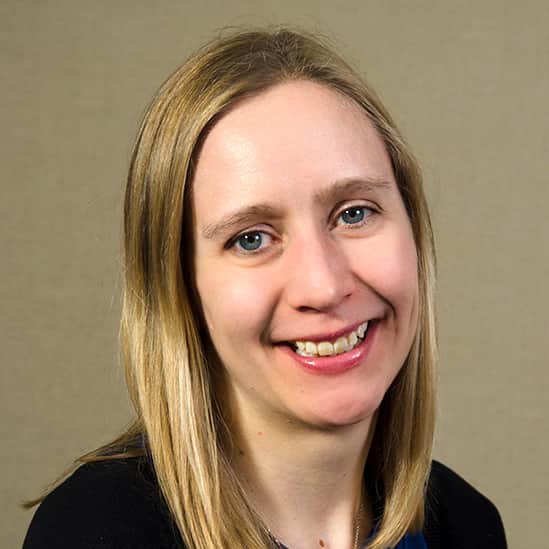
I am interested in psychological determinants of appetite and eating behaviour and in the application of this knowledge to interventions for health behaviour change. Charlotte is interested in psychological influences on eating and weight management.
Dr Adrian Brown 
My research is research interests centre around obesity, type 2 diabetes, bariatric surgery, weight stigma and the use of formula-based diets in different patient populations. I have recently focussed on weight-related terminology used by healthcare professionals, and the impact of COVID-19 on people living with obesity.
Professor Flora Douglas 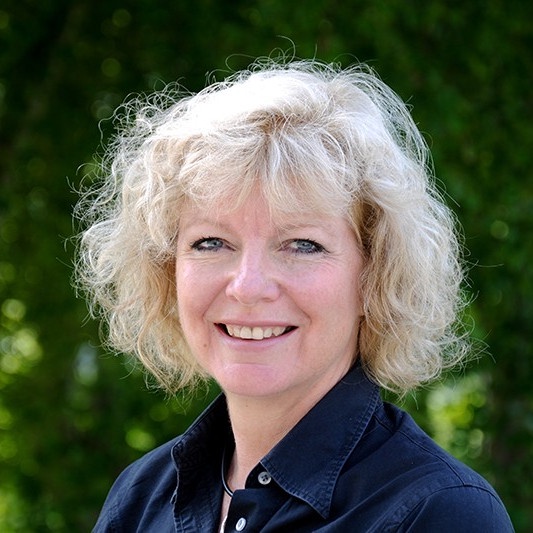
Flora contributes to a number of national and local steering and advisory groups concerned with addressing household food insecurity and health in Scotland. Her particular focus is on providing expert input on the evaluation of interventions intended to address food poverty in Scotland.



- Work Package 2
-
Use food purchasing data to understand inequalities in dietary behaviours and identify how to nudge people to healthier and sustainable diets.
Aim
Utilising supermarket transactions and data science to understand the health and sustainability of population diet at scale.
Who is involved
Associate Professor Michelle Morris 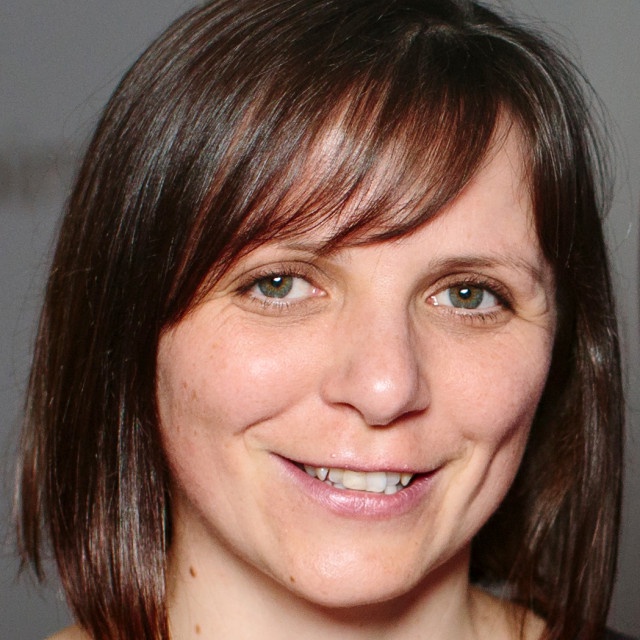
Michelle is an interdisciplinary researcher with a background spanning: health informatics, geography, nutritional epidemiology and health economics. Michelle is a University of Leeds University Academic Fellow in Health Data Analytics and a Turing Fellow. Currently, she directs the multidisciplinary ESRC Strategic Network for Obesity and has developed a diverse teaching portfolio, including spatial analytics and visualisation for health. With this unique career history she is well placed to achieve her vision to cross discipline boundaries bringing together people, data and methods to improve health through informatics - specifically combining consumer analytics with health informatics and using 'big data' to benefit patient outcomes.
Professor Mark Gilthorpe 
Mark is Professor of Statistical Epidemiology in the Obesity Institute at Leeds Beckett University, and a Fellow of the Alan Turing Institute for Data Science and Artificial Intelligence. Trained as a mathematical physicist, Mark's driving interest centres on improving our understanding of the observable world through modelling.
Dr Mark Green 
Mark is currently Reader in Health Geography, within the Department of Geography & Planning at the University of Liverpool. Mark's research examines how new forms of (big) data (e.g., images, text, loyalty card records) can supplement traditional administrative datasets (e.g., mortality records, surveys, hospital admissions data) for understanding the social and spatial drivers of health inequalities.


- Work Package 3
-
Implementation of UK wide, in-store retail strategies to promote sustainability in consumers & assess the feasibility and acceptability within a MoreLife patient cohort.
Aim
Implementation of retail strategies to promote healthy and sustainability purchasing in consumers & patients.
Who is involved
Professor Paul Gately 
Paul is Professor of Exercise and Obesity in the Carnegie School of Sport. He is also a Co-Director of the Obesity Institute. Paul's work in the Institute holds the voice of people living with obesity at the core of what we do, we also recognise the complexity of the problem and we are developing ways and tools to overcome this societal problem.
Dr Claire Griffiths 
Claire's research interests include obesity and the environment. She is particularly interested in investigating how the environment, including access to food outlets and opportunities for physical activity and lifestyle behaviours that influence obesity.
MoreLife provide programmes and services to individuals that will help them change their behaviours and make a difference to their overall health and wellbeing. Their aim is to make the lives of individuals healthier, through healthy lifestyle behavioural interventions such as weight management, giving up smoking, NHS Health Checks, healthy eating or improved physical activity. They work with individuals on their own, with their families, within groups from the local community, school or workplace.
Ms Nilani Siratharan 
The Sainsbury's Group bring notable added value to this project. They will share, their nectar card loyalty records with the research team for studying food purchasing patterns. They have around 1.7 million primary shoppers who are defined as low affluence (based on income, tenure, and savings). We will be collaborating with Sainsburys so that we can tackle the cost-of-living crisis directly with those involved in the supply chain. We will be analysing Nectar customers food habits and utilising survey's, focus groups and initiating a national digital intervention study.
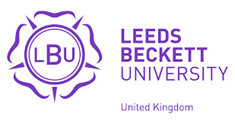

- Work Package 4
-
Stakeholder engagement and impact delivery.
Aim
To share project findings for transformative potential with key stakeholder through engagement & impact delivery, throughout the grant period .
Who is involved
Professor Alexandra Johnstone Professor Alexandra Johnstone
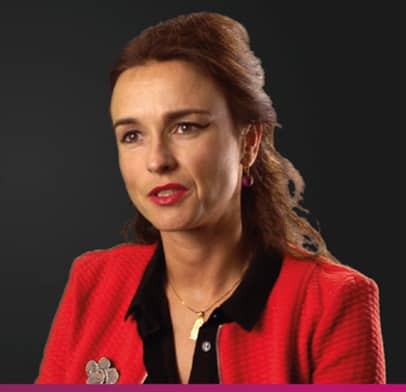
Steering Group
Advisory group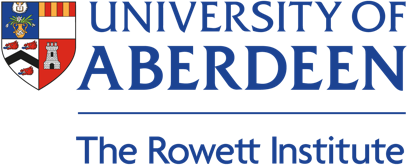
Deliverables
- Knowledge Exchange and Public Involvement
-
HIGHLIGHTS FROM THE KNOWLEDGE EXCHANGE EVENT - ROYAL HIGHLAND SHOW 2024
In June, the FIO Food Team hosted a mini-market challenge at the Royal Highland Show , which is Scotland's biggest annual agricultural event showcasing the best of food, farming and rural life at Ingliston in Edinburgh. We invited visitors to purchase breakfast items for under £1 - a reflection of the average daily spending on breakfast in the UK (2022 ). This eye-opening activity highlighted how tight budgets severely limit access to fresh produce, fruits, and vegetables. The experience sparked meaningful conversations about food affordability, with many participants gaining a new perspective on the challenges faced by those with limited resources. Watch a 2min video with RHS highlights prepared by Mia Fuery during her student placement with the FIO Food project.
CHALLENGE POVERTY WEEK
The FIO Food Team together with Aberdeenshire Council hosted a PPI workshop on the 4th of October 2022 at the Rowett Institute, University of Aberdeen to discuss diet inequalities and contribute to the Challenge Poverty Week campaign The workshop was run by Prof Alex Johnstone and Prof Flora Douglas and had 31 attendees representing the Aberdeenshire consumers. Challenges related to the cost of living crisis were discussed and barriers in purchasing foods that would help to maintain a healthy diet. A vignette was developed based on discussion themes which was shared with the project team to provide insights for the intervention, as well as with project stakeholders.
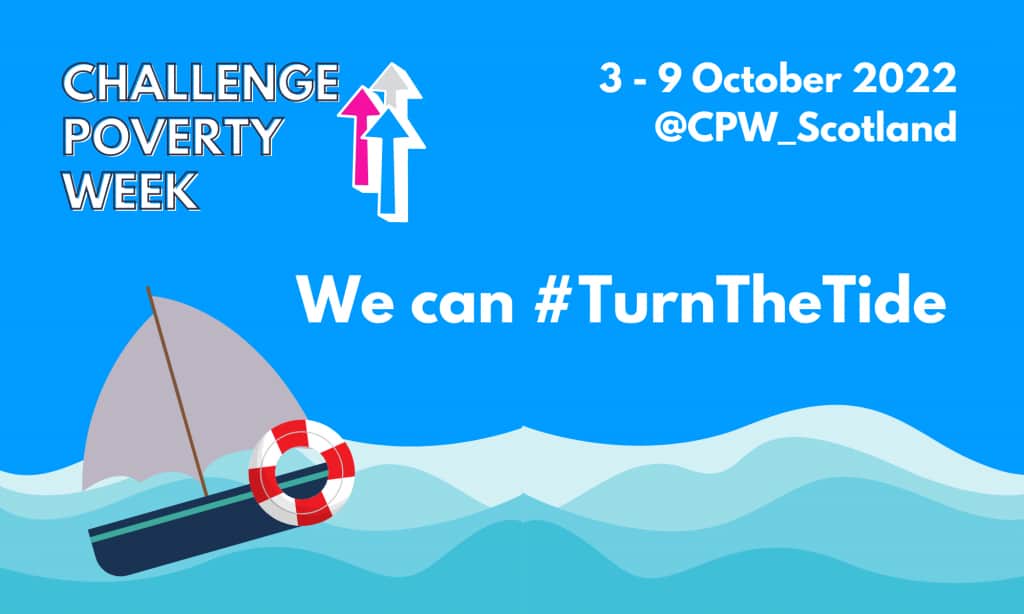
- Briefs & Reports
-
POLICY BRIEF: PERCEPTIONS OF SUPERMARKET INTERVENTIONS
In this policy brief, we present bite-size results related to the perceptions of supermarket interventions focused on facilitating healthier and more sustainable food choices. Full document availablehere .
WHITE PAPER
In this White Paper, we present the findings from two of the FIO Food project stakeholders' workshops that we ran at the beginning of 2024. We have co-produced knowledge across academics, stakeholders and consumers' lived experiences to formulate actions for policymakers and healthcare professionals. All of these insights were equally needed to explore potential avenues that can be applied in the food system to promote healthier and more sustainable choices in the food retail environment, particularly among those with greater health risks.
How to cite:
Lonnie, M., Crabtree, D., & Johnstone, A. on behalf of the FIO Food Team (2024). Tackling dietary inequalities in the UK food system: An exploration of stakeholders' experiences to deliver national recommendations for policy and health care practitioners (a framework for action). https://doi.org/10.31219/osf.io/evc9y
RESEARCH BRIEF: RETAILERS INTERVIEWS
As part of the Work Package 1 deliverables, Prof. Charlotte Hardman and Dr Rebecca Stone conducted a qualitative interview study with seven UK supermarket senior nutritionists, who represented 85% of the grocery market share in the UK. The animation below provides a brief overview of their perspectives, views, and experiences on the acceptability and feasibility of using price/incentivisation as interventions for health and sustainability.
- Working with Patient and Public Involvement (PPI) advocates
-
WHAT IS CO-PRODUCTION
Co-production of research is one of the key strengths of the FIO Food project. It is defined as the process in which researchers, practitioners and members of the public collaborate to develop research together. This approach can help to strengthen public involvement as well as create and implement more relevant and applicable solutions (Farr et al, 2021 ). Our Team has developed a video to explain what it means to be a Patient and Public Involvement (PPI) member in health research co-production. We hope this video will help in the recruitment process.
HOW TO WORK WITH PEOPLE WITH LIVED EXPERIENCE OF DIETARY INEQUALITIES
Dr Charlotte Hardman (FIO Food Team) and Dr Rachel Loopstra (University College London) ran one of the TUKFS workshops in Sheffield. The workshop was a discussion session on dietary inequalities/food insecurity, which aimed to identify synergies between TUKFS projects and to agree on ways of working together to increase the scope and impact of research. A vignette from the workshop includes infographics which illustrate:
- How to engage and collaborate with people with lived experience of food insecurity?
- How to collect robust data to monitor the extent of dietary inequalities
- What interventions currently exist to tackle household food insecurity in the UK?
- How can the TUKFS projects best work together to create joined up impact?
LIVED EXPERIENCE INTERVIEWS
In May 2025, FIO Food and DIO Food delegates organised an event at the Scottish Parliament entitled Tackling dietary health inequalities in Scotland, kindly sponsored by Rhoda Grant, MSP. This reception offered Members evidence-based insights into retail strategies that can address dietary health inequalities for people living with food insecurity and support environmentally sustainable and healthier food choices. A huge thank you to our PPI advocates - Naomi, Deborah, Larry and Paul - who shared their valuable lived experience insights of living with obesity and/or food insecurity.
In July 2023, FIO Food delegates contributed to the parliamentary event showcasing the FIO Food project, providing a summary of the FIOFood project objectives and preliminary insights to show opportunities in co-creation to support systems change. Our PPI advocates - Jennie and Kathleen - shared their valuable lived experience insights of living with obesity and/or food insecurity. The interviews can be viewed below.
ECR PERSPECTIVES: HOW TO ESTABLISH AND MAINTAIN PARTNERSHIPS WITH PPI GROUPS (FIO FOOD CASE STUDY)
In this video, Dr Emma Hunter from FIO Food Work Package 1 is sharing her experience of working with the project's PPI groups.
- Journal publications
-
- Stone, R. A., Brown, A., Douglas, F., Green, M. A., Hunter, E., Lonnie, M., Johnstone, A. M., Hardman, C. A., & FIO-Food Team (2024). The impact of the cost of living crisis and food insecurity on food purchasing behaviours and food preparation practices in people living with obesity. Appetite, 196, 107255. https://doi.org/10.1016/j.appet.2024.107255
- Johnstone, A. M., Lonnie, M., & FIO Food project team (2023). Tackling diet inequalities in the UK food system: is food insecurity driving the obesity epidemic? (The FIO Food project). The Proceedings of the Nutrition Society, 1-9. https://doi.org/10.1017/S0029665123004871
- Lonnie, M., Hunter, E., Stone, R. A., Dineva, M., Aggreh, M., Greatwood, H., Johnstone, A. M., & FIO Food team (2023). Food insecurity in people living with obesity: Improving sustainable and healthier food choices in the retail food environment-the FIO Food project. Nutrition bulletin, 48(3), 390-399. https://doi.org/10.1111/nbu.12626
- Johnstone, A., Lonnie, M., & FIO-Food project team (2023). The cost-of-living crisis is feeding the paradox of obesity and food insecurities in the UK. Obesity (Silver Spring, Md.), 31(6), 1461-1462. https://doi.org/10.1002/oby.23740
- Open Science Framework - pre-prints and study protocols
-
- Stone, R. A., Christiansen, P., Johnstone, A., Brown, A., Douglas, F., & Hardman, C. (2023, December 20). Understanding the barriers to purchasing healthier, more sustainable food for people living with obesity and food insecurity. https://doi.org/10.31219/osf.io/3xe7w
- Stone, R. A., & Hardman, C. (2023, November 17). UK supermarket nutritionists' views and perspectives. https://doi.org/10.17605/OSF.IO/3KW6X
- Hunter, E. (2023, July 19). Characteristics of supermarket-based interventions aimed at improving the dietary quality of people living with obesity and food insecurity and the role of environmental sustainability on purchasing behaviours: A Scoping Review. https://doi.org/10.17605/OSF.IO/3K8DN
- Stone, R. A., & Hardman, C. (2023, February 2). In people living with obesity, how is food insecurity associated with healthier, more sustainable food purchases? https://doi.org/10.17605/OSF.IO/BYZKP
- Podcasts
-
Episode 2 - Professor Charlotte Hardman and Professor Flora Douglas
Episode 1 - Professor Alex Johnstone
- Newsletters
-
FIO Food Newsletter January-July 2025
FIO Food Newsletter August-December 2024
FIO Food Newsletter April-July 2024
FIO Food Newsletter January-March 2024
FIO Food Newsletter October-December 2023
FIO Food Newsletter July-September 2023
FIO Food Newsletter May-June 2023
FIO Food Newsletter March-April 2023
FIO Food Newsletter February 2023
FIO Food Newsletter December 2022
FIO Food Newsletter November 2022

